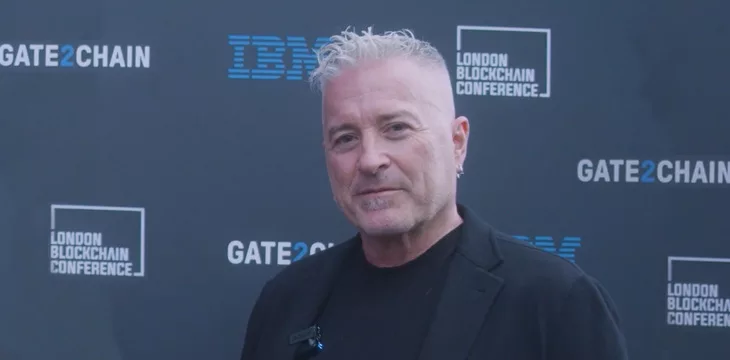VMware Blockchain v1.8: Supports Enterprise-grade Ethereum Blockchains

We are excited to announce VMware Blockchain v1.8, our latest release that includes major improvements to support enterprise-grade Ethereum blockchains. As we continue to add Ethereum support to the VMware Blockchain platform, we deliver flexibility and choice to our customers.
In August 2022, VMware Blockchain announced the availability of the beta of Ethereum. In that release, we delivered scalability, recoverability, and data integrity improvements for the platform, while adding support for Daml 2.0 and improving cloud-based deployments on AWS. This release introduces key features to enable Ethereum for enterprise adoption. What does it include? Let’s dive into the new feature highlights in this release
Privacy SDK
Earlier this year, we published research on how UnTraceable Transactions (UTT) can be used to ensure responsible privacy in decentralized Ecash. We then led a co-innovation project to support the Bank of Israel’s experimentation with the digital shekel. For VMware Blockchain 1.8, we will introduce a Privacy SDK that enables developers to build and test an end-to-end private token transfer dApp. The SDK consists of a zero-knowledge client-side library that interacts with on-chain Solidity token contracts using standard JavaScript integration libraries such as Ethersjs or Web3js. The token contracts can be amended to change token details, token supply and privacy budgets. The SDK enables zero-knowledge proof generation, and the token contracts on the chain leverage precompiled contract code to perform proof validation. This approach abstracts the complexity of Zero Knowledge Proof cryptography from developers, allowing them to focus on dApp and token design.
Management controls (permission)
In this release, VMware Blockchain for Ethereum will implement “account authorization” in accordance with the Enterprise Ethereum Alliance (EEA) specification to provide the necessary tools and granularity to govern actions allowed by accounts on the blockchain. Permission in the context of enterprise blockchains is a necessary feature for our customers as they seek ways to control access to deploy and execute smart contracts running on the blockchain. The account permission feature can be enabled during network creation by providing the necessary parameters in the deployment configuration file. The compiled permission smart contract and the account(s) that can grant permissions to other addresses should also be included in the genesis file. The “Permissions Admin” user can use a dApp or the Permissions UI to control which accounts are allowed to send transactions and specify the type of transactions allowed. Transaction types can be READ, WRITE and DEPLOY permissions to other accounts. dApp should be the preferred method for providing access to a large number of accounts.
Ecosystem integrations
The Ethereum ecosystem has the broadest and most mature stack for building blockchain networks. VMware Blockchain for Ethereum was built with these extensive integration capabilities in mind, allowing customers to leverage their existing investments in the Ethereum ecosystem. This provides access to these integrations to get the most out of an Ethereum investment, providing seamless support under one umbrella. The beta supports standard Ethereum APIs, commonly used development tools such as Truffle, Hardhat, Remix, Web3j, Ethersjs and wallets such as MetaMask and Fireblocks to enable a seamless developer experience. Early adopters of VMware Blockchain’s integration capabilities include Fireblocks, a digital asset and crypto technology platform used by over 1,500 customers, and Web3 Labs, a leading web3 and blockchain technology and strategy company specializing in enterprise solutions. Their Web3j library makes it easy to build Ethereum applications with the Java platform.
Early customers of VMware Blockchain for Ethereum
With its focus on enterprise needs, VMware Blockchain has been adopted in two separate trials: 1) Bank of Israel and 2) Tel Aviv Stock Exchange. In the Bank of Israel sample, the VMware Blockchain UUT privacy feature was used where wallets had both regular digital shekels as well as a monthly allocation of 1,000 private digital shekels where the transactions are not openly recorded on the blockchain. The VMware solution combines zero-knowledge proofs (ZKPs) and eCash, a privacy concept developed by early digital currency inventor David Chaum, which originally did not use blockchain. In the Tel Aviv Stock Exchange pilot project, VMware Blockchain will provide the Ethereum backbone to enable TASE to tokenize bonds, sending them to participants’ digital wallets while the issuance consideration, in digital currency, is transferred from participants to the State of Israel’s own. wallet, according to a statement.
Download the VMware Blockchain for Ethereum (Beta1) Developer Kit
VMware Blockchain for Ethereum is available to download and run locally on your laptop! Simply sign up to download the developer kit by signing up for the VMware Blockchain for Ethereum beta program here.
Resources:
- If you enjoyed this release update, please follow us Twitter to stay updated on the latest VMware Blockchain information
- Interested in learning more about VMware Blockchain requirements and usage? See our electronic product documentation.
- Questions? Contact the VMware Blockchain group via Slack.
























